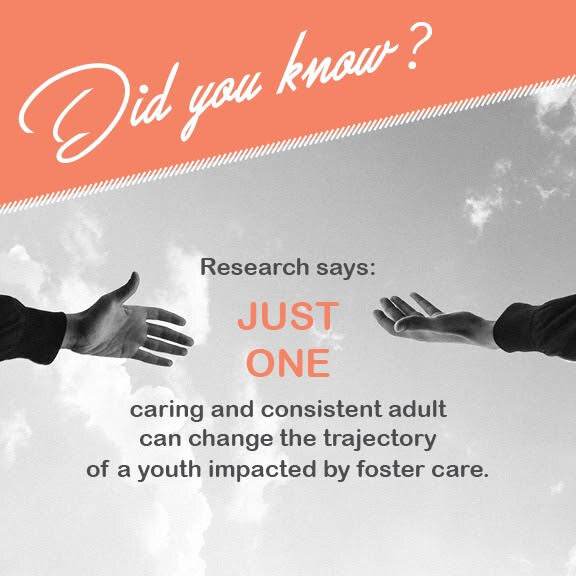
By Ashley Phelan
Many years ago, I had a foster child on my caseload named Jason.* Jason had been in foster care since he was a toddler – he never knew a different life. Jason was found roaming a parking lot as a small child in the middle of the night. It was assumed that his parents abandoned him there as his family could never be located. He was able to tell law enforcement his name, but that was about all he could communicate at that time. As he grew, Jason bounced from foster home to foster home. He eventually was placed with a foster family on my caseload and I became his social worker. Jason was now a teenager who struggled to trust others, get his needs met in a healthy way, and see any kind of purpose or future for himself.
As Jason and I got to know each other, he shared heartbreaking stories with me. In one family, he was tied to the bedpost at the foot of the bed and beat with electrical wire. In another home, his foster parents locked the refrigerator – so he’d go through periods of hunger. In his last placement, Jason endured sexual abuse. Through the years of harmful and negative interactions, Jason had begun to believe that he had zero self worth and value – and that he was unwanted. He didn’t have to verbally express this to me – I saw it in his eyes and in his face. It was evident in the way he carried himself and interacted with others. My heart grieved for what Jason had gone through during his years in foster care.
Sadly, Jason is just one of many, many children and youth in foster care. There are currently more than 400,000 children in the foster care system in the United States. Every one of these children and youth have a name, have a story, and have the right to a healthy, safe, and loving home (whether that be with their birth, foster, or adoptive family). Like Jason, each foster child is asking, “Do you see me? Do I have worth? Am I seen, valued, and heard? Am I wanted?”
For Jason, and every other foster child, I believe that the answer to all of those questions mostly lies within a caring adult. In fact, many scientific studies prove that connection and relationships with a loving adult is what mainly creates resilience within a child. It can “combat” the trauma previously endured. The trust, felt safety, and attachment that is formed through loving and caring relationships help a child to not only grow, but overcome obstacles and thrive. Children see that they matter – that they are precious.
Renowned expert in the field of childhood trauma, Dr. Bruce Perry says, “The more healthy relationships a child has, the more likely he will be to recover from trauma and thrive. Relationships are the agents of change and the most powerful therapy is human love.” I wonder how Jason’s story would have been different had he had a caring adult walking alongside him?
Thankfully, there are many more good foster homes than bad ones. Jason’s story is not typical. However, I hear similar stories to Jason’s more often than I would like. Instead of being the healing balm that a child needs, some families (or adults) choose to create more chaos and trauma. Such missed opportunities.
Perhaps more concerning, is that trauma is not contained to only foster children. Statistics show that one out of every two children now come from a hard place. For just one example, domestic violence, which is widespread, has been proven to be more dangerous to children than in utero drug exposure. Childhood trauma is quickly becoming the largest epidemic facing children worldwide. This is a growing fire that needs to be put out, and it can only be extinguished through the power of relationship, connection, and love.
All these years later, I still think about Jason. We lost touch and I worry and wonder where he is now (he aged out of the system). I see his face in every foster child, and that daily drives me to ask myself, “How am I seeing, valuing, and hearing this child in front of me today? How can I be the adult that helps them create resilience?”
>
“I see his face in every foster child, and that daily drives me to ask myself, “How am I seeing, valuing, and hearing this child in front of me today? How can I be the adult that helps them create resilience?” ”
*Name changed for privacy.
If you’d like to learn more about the power or relationships, please check out:
Dr. Dan Siegel
60 Minutes/Oprah Winfrey
NYU
The Connected Child
Josh Shipp
The Changing Brain
